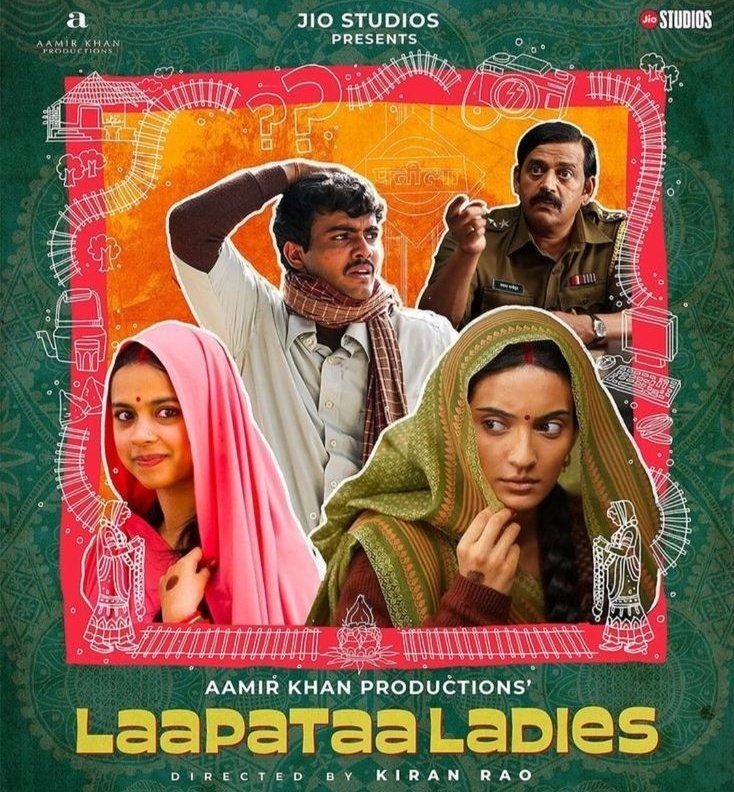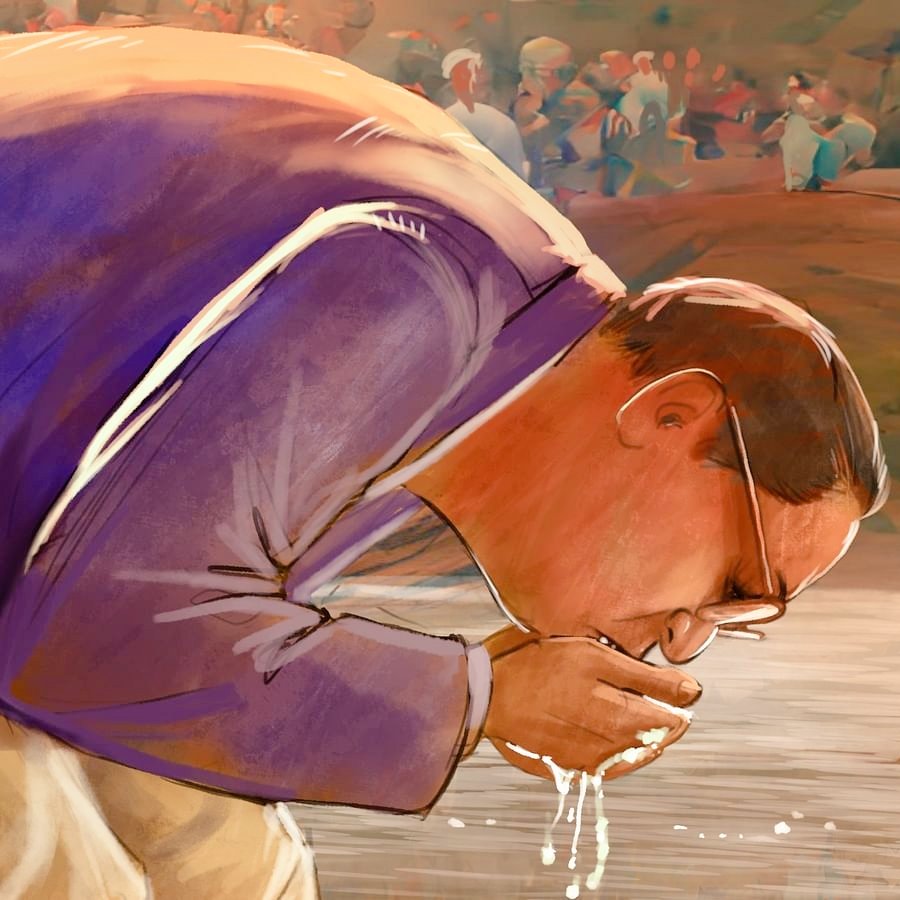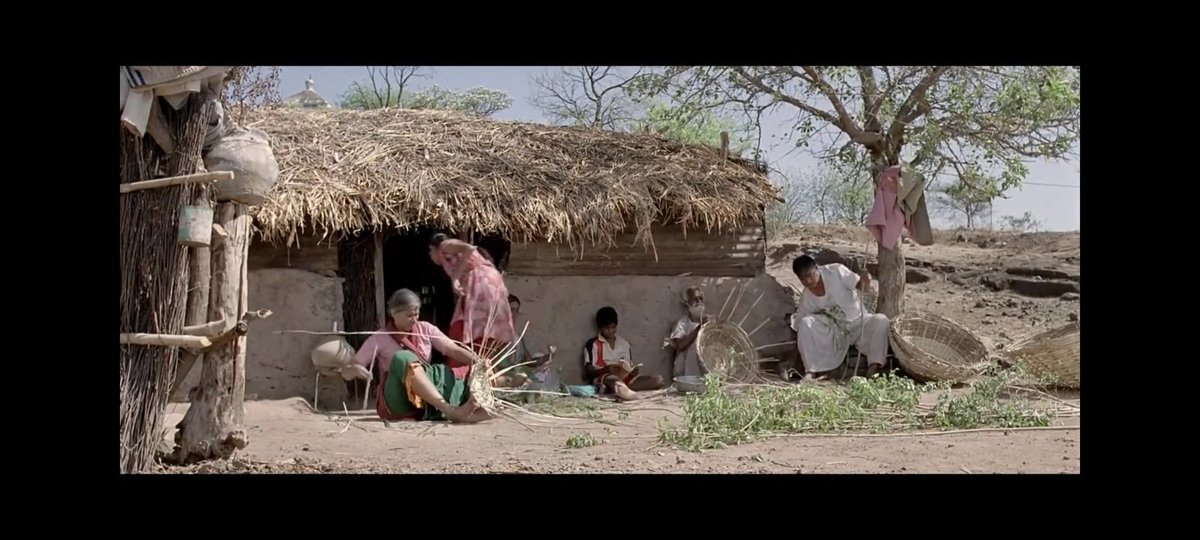#NatchathiramNagargiradhu a dialogue driven, visually compelling movie. This movie is @beemji 's abstract painting.
Let me try to explain this brilliant movie for you. 🧵👇
Let me try to explain this brilliant movie for you. 🧵👇
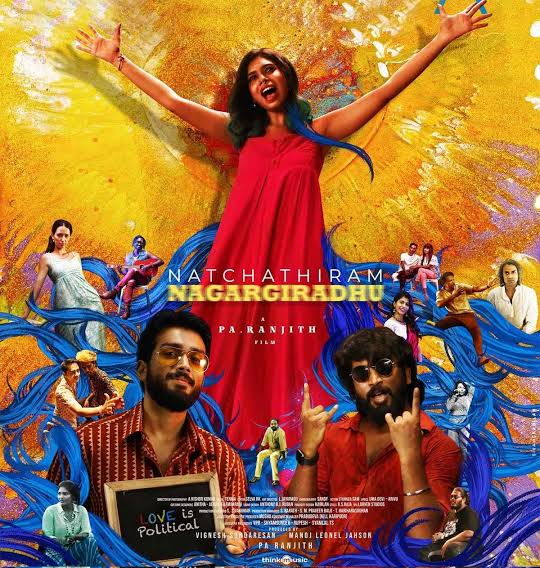
Movie starts with a scene of Rene and Iniyan fighting over different taste in music. But it is not just different taste in music. It is about how you react to something you don't like. Rene was made to realise that her nature is different and she belongs to a different caste. 

Rene is economically strong, we get that feel by looking at her books, coloured hair and independent life. But that doesn't mean she won't face casteism. This scene challenge the notion that economic progress can solve all the problems of Dalits. 



Rene's birth name was "Tamizh" and @beemji used it metaphorically to explain the fact that even if we speak the same language (Tamizh or Tamil) people don't connect with us because we are from different caste. Even the same language couldn't unite us.
STAR & ROHIT VEMULA -
Star can be seen as a reference to Rohit Vemula's suicide note where he wrote
"I don’t believe in after-death stories, ghosts, or spirits. If there is anything at all I believe, I believe that I can travel to the stars. & know about the other worlds."
Star can be seen as a reference to Rohit Vemula's suicide note where he wrote
"I don’t believe in after-death stories, ghosts, or spirits. If there is anything at all I believe, I believe that I can travel to the stars. & know about the other worlds."
Universe is something that doesn't change, it remains as it is. It is easier for Rohit Vemula ( and even Rene) to build a relationship with the stars than a fellow human being. 
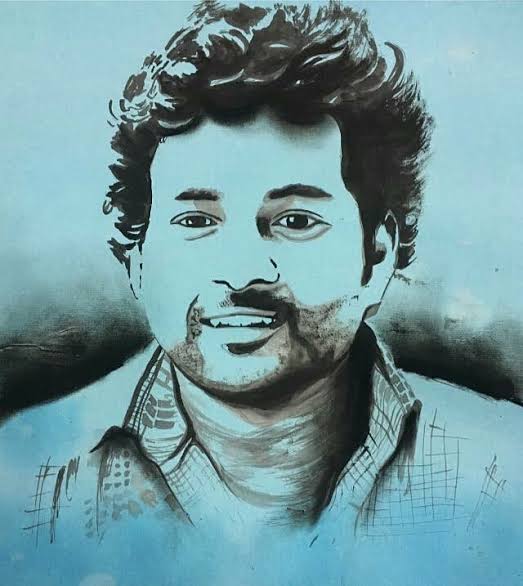
Different people show casteism in different form according to their position in society and their relationship with the victim. Different relationships can be - Friendship, Romantic relationship, Mother- son/daughter or father-son/daughter relationship.
Arjun vs Iniyan (Character Analysis)
ARJUN - Arjun is a character who is less educated. He imbibed many problematic things from his close surrounding of problematic people, his views are raw and without any filter.
ARJUN - Arjun is a character who is less educated. He imbibed many problematic things from his close surrounding of problematic people, his views are raw and without any filter.
But once he get accustomed to the people in theatre we can see some changes. But as we move forward it becomes more complex, it feels like his change was temporary because he couldn't face his parents. 



Future of this character is uncertain, but at the end Arjun's character has different perspective to choose from. Many will definitely connect to this character.
Iniyan's character feels progressive and liberal in many aspects. But because of that his casteism is subtle and sophisticated in a circle of friends who are progressive. 

He feels that just because he kissed Rene hundreds of time its not wrong to kiss her after their breakup. This is a layered character who identity himself as progressive or liberal, but he isn't.
Women in Arjun's home -
Casteism is always seen through men in cinema. Arjun's mom show how women are also involved in upholding the caste. They usually use the emotional tactics to uphold caste in a family.
Casteism is always seen through men in cinema. Arjun's mom show how women are also involved in upholding the caste. They usually use the emotional tactics to uphold caste in a family.
In this scene Arjun's mom reveals the fact that Arjun loves a Scheduled caste girl. In that scene we can see 3 (upholding caste) vs 1 (against caste). So this scene depicts how hard and complex it is for an anti-caste voice to get attention in a family full of casteist people. 







Arjun's mom also use every emotional strategy to influence him and even use mysogynistic slurs against Rene and against her own daughter to defend caste rules. 


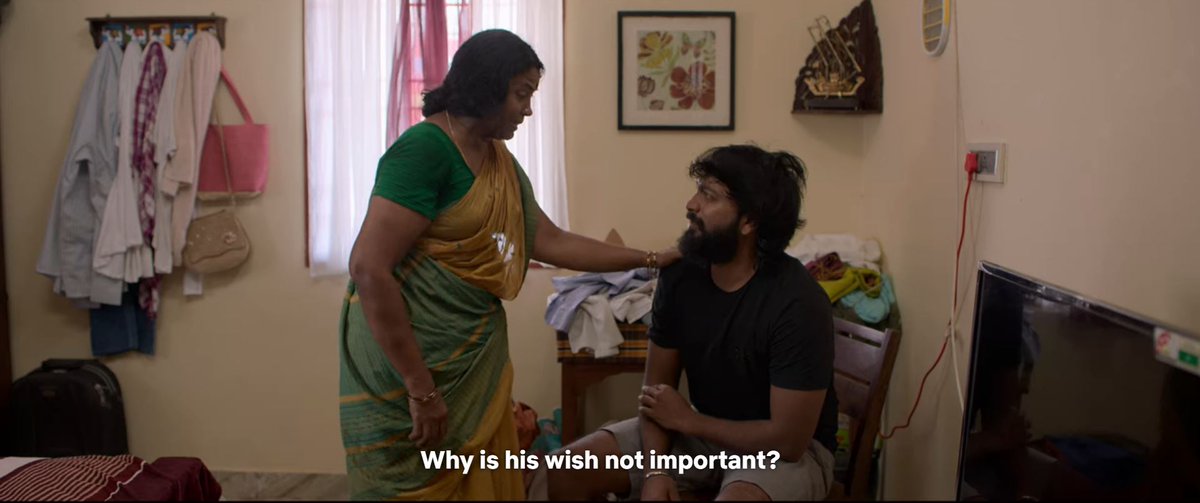
LGBTQ -
This part of the movie felt a bit less explored. Still this movie portrayed LGBTQ just like others, without stereotyping or portraying them in caricaturish way (which most mainstream movie do).

This part of the movie felt a bit less explored. Still this movie portrayed LGBTQ just like others, without stereotyping or portraying them in caricaturish way (which most mainstream movie do).


There is a scene in which Dayana (Sumeeth Borana), a queer person, gets angry on a character because the he mentions that Brahminism is the root cause of all the problems. 

Brahminism doesn't mean Brahmins. Dayana doesn't understand the difference. Dayana constantly faces the threat of oppression for his sexual orientation. But that doesn’t seem to remove the privilege of caste.
RENE vs Arjun's fiance -
We can see throughout the movie that Arjun's fiance ( also from UC ) doesn't like Arjun because of his mysogynistic views.
But she still agrees to marry him because of her family pressure.
We can see throughout the movie that Arjun's fiance ( also from UC ) doesn't like Arjun because of his mysogynistic views.
But she still agrees to marry him because of her family pressure.

Rene on the other hand is strong women who can decide for herself. She controls her friendship with Arjun (with her own terms & conditions).
This is the reason why Rene needs to be strong, independent and idealistic. Her strong views on everything is because of if she shows any weakness the society is ready to exploit that.
Rene explains to Arjun why she is so bold, why people consider her arrogant. She gives a flashback to her life. She explains how she was humiliated for her caste. 

How her food, her father's profession (he plays drum), how her scholarships and even her existence was inferior in the eyes of others ( Oppressor caste). She says she is desperate to show the world that she is stronger and braver person. 







In this movie there were 2 scenes where you can see Rene opening a door to illuminate the frame with light. In one of the scene there is a mural of Buddha above the door to denote the fact that she is an Ambedkarite who wants to show the path of Buddha to people ( Arjun & Iniyan) 



There is a song in the movie "En Janame" that contain real footage of people who were in love and got killed brutally in daylight, because they disobeyed the caste rules (Honour killing).
There is also a depiction of of female foeticide in the same song. This song is powerful and it has the power to scar your soul.
Hats off to the music of @tenmamakesmusic 💙❤️
Hats off to the music of @tenmamakesmusic 💙❤️
There is a theatre scene depicting the cruel caste killing and the way @beemji used the frame is just outstanding. Those frames are brilliant, both artistically and politically. 





The term "Cat" was used metaphorically for Caste.
Domestic cat and Wild cat.
There is another type of Cat "Master Cat"
Domestic cat and Wild cat.
There is another type of Cat "Master Cat"
Master cat - Whoever are against the important philosophies of this movie can be called Master cats. All such people are in powerful position (or are in contact with powerful people) who created this social systems.
It is hard to fight them, but not impossible if all who agree with the philosophy of this movie come together. 



White colour is used for good things and symbol for purity. But in this movie the villain lives in white room, wearing white clothes.
@beemji has broken the stereotypes attached to colours by using white color for the villain @actorshabeer

@beemji has broken the stereotypes attached to colours by using white color for the villain @actorshabeer


@beemji proved that
"Cinema is more powerful than any other medium that can be used effectively to bring social change in our society."
#NatchathiramNagargiradhu is the prime example of how great films can initiate Important discussions.
"Cinema is more powerful than any other medium that can be used effectively to bring social change in our society."
#NatchathiramNagargiradhu is the prime example of how great films can initiate Important discussions.

Fiancée *
• • •
Missing some Tweet in this thread? You can try to
force a refresh






